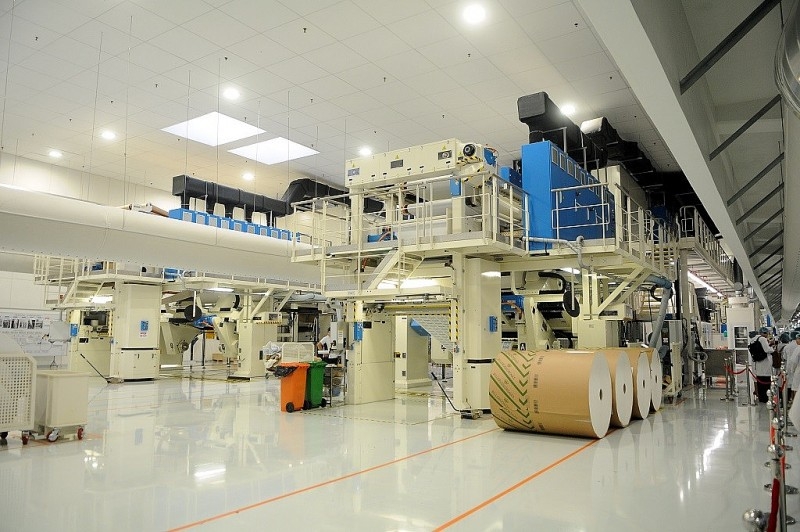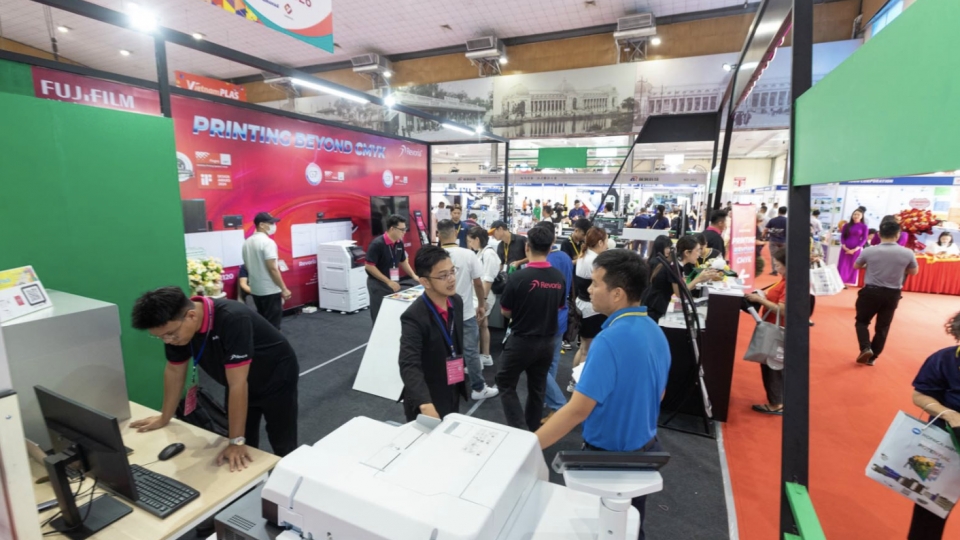Green packaging industry in Vietnam poised for breakthrough growth
VOV.VN - Vietnam’s packaging industry is undergoing a dynamic transformation, with eco-friendly packaging emerging as a key growth driver.

There is ample room ahead for the local green packaging industry as the paper packaging market size hit US$2.6 billion last year and is anticipated to grow to US$4.14 billion by 2029, reflecting a compound annual growth rate (CAGR) of 9.73%. Meanwhile, plastic packaging output is projected to hit 15.09 million tonnes by 2028, with a CAGR of 8.44%.
Rising demand drives green shift
Economic experts highlight Vietnam as a strategic manufacturing hub, attracting major global procurement firms thanks to its competitive production costs, abundant workforce, and commitment to greening its supply chains. The growing trend toward “green value chains” is pushing many foreign-invested enterprises (FDIs) in retail, beverages, and fast-moving consumer goods (FMCG) to adopt eco-friendly packaging solutions.
This demand is not limited to the domestic market. According to Alibaba.com Vietnam, global interest in Vietnamese packaging and printing has surged, with searches for products such as biodegradable cardboard tubes, bamboo and wooden boxes, and single-use paper cups increasing by over 70% year on year. Conversion rates from views to orders in this segment are at 8.94%, far exceeding industry averages.
Vietnam is increasingly recognised as a strong player in sustainable packaging manufacturing, thanks to its adaptability and innovation.
The momentum is further reinforced by government policies. The 2020 Law on Environmental Protection sets out a roadmap to phase out and eventually ban single-use plastic packaging in supermarkets and shopping malls. Cities like Ho Chi Minh City, Hanoi, and Da Nang have issued plans to ban plastic packaging in retail and tourism sectors during 2025–2030.
According to the National Statistics Office, Vietnam is home to over 6,000 packaging businesses, most of which are transitioning to greener alternatives to meet growing export market demands. This provides a solid foundation for the long-term sustainable development of the green packaging industry.
Companies embrace strategic shifts
Driven by green consumption trends and the circular economy, Vietnamese firms are restructuring for sustainability. Duy Tan Plastic Production JSC has led the way by investing in a Bottle-to-Bottle recycling plant in Long An province which is capable of recycling 100,000 tonnes of plastic annually into food-grade plastic pellets. Since 2020, it has recycled over 80,000 tonnes of plastic waste, about six billion PET bottles, mainly for export. The company’s sustainable development director, Le Anh, noted that domestic demand is currently growing as beverage and dairy companies target 50% recycled plastic usage by 2030.
Most notably, smaller businesses are also adapting to the trend by prioritising packaging designs which save materials and facilitates recycling. Magix Company, led by Chairman and CEO Do Huu Tan, is focusing on eco-design, recyclability, and minimal material usage. The company also uses biodegradable adhesives, honeycomb paper padding, and produces durable paper-based office supplies and toys.
However, the CEO acknowledged that green packaging is between 10% and 20% costlier than traditional alternatives.
Meanwhile, startups are also entering the eco-packaging race. Bquarius Co., Ltd., based in Ho Chi Minh City, began producing bowls and plates made from areca palm leaves in 2018 and started exporting in 2022. Today, the company exports about one container per month with a variety of sizes.
But the fact is that the domestic market remains slow, largely due to pricing. According to Le Bach Kim, sales director of Bquarius, the company’s products are twice as expensive as plastic alternatives, posing a challenge for widespread adoption.
“Our products cost about twice as much as plastic ones. But we believe that once consumers understand the value of green products, they’ll be willing to pay more,” said Kim.
Kim was optimistic that once single-use plastics are officially banned, the market would shift. “As demand rises and eco-products become mainstream, production costs will decrease, opening up huge opportunities for environmentally friendly packaging and product manufacturers,” stated the sales director.




